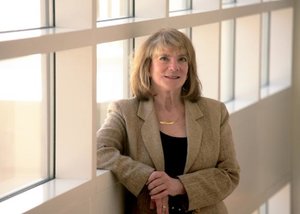The weekly update on the Secular Policy InstituteÔÇÖs Fellows
by Madeline Schussel
SPI welcomes several new members this month: Ayanna Watson, founder of Black Atheists of America, is a new Advisory Board member; and Greg Stikeleather, expert in Experimental Psychology and entrepreneur in Learning Sciences. Christine Shellska, Ph.D. Candidate at the University of Calgary, is a new SPI Advocate, and Hugo Estrella, Professor in Peace Studies at the University of Pisa, is a new Special Advisor on Latin America. More information on all of our team members is available on our website.
SPI Fellow Wendy Kaminer is a lawyer and social critic who writes about law, liberty, feminism, popular culture, and religion. Her latest book is┬áWorst Instincts: Cowardice, Conformity and the ACLU.┬á A recipient of the Smith College Medal and a former Guggenheim Fellow, she is the author of seven previous books, including Free for All: Defending Liberty in America Today, which just this week earned her a mention on About.com. In the book, Kaminer explains that individuals ought to house their own human rights, rather than giving them over to a governing body. Otherwise, she articulates, citizens support the faulty notion that ÔÇ£we’re a nation of children (while the government is staffed by adults).ÔÇØ On issues of ÔÇ£rightÔÇØ and ÔÇ£wrongÔÇØ, ÔÇ£goodÔÇØ and ÔÇ£badÔÇØÔÇöoften involving topics such as religious practice and principlesÔÇöKaminer and the About.com article author agree that, within reason, the government cannot have the final say.
 SPI Fellow Elizabeth Loftus, cognitive psychologist and expert on false memories, made the Huffington Post this week on the topic of the social media meme #TheDress, and how differently it was perceived by all different color camps. In a TED Talk, Loftus discusses the error of basing criminal convictions solely on eyewitness testimonyÔÇöan error that stems from flaws in our belief system about our perceptions and recollections.
SPI Fellow Elizabeth Loftus, cognitive psychologist and expert on false memories, made the Huffington Post this week on the topic of the social media meme #TheDress, and how differently it was perceived by all different color camps. In a TED Talk, Loftus discusses the error of basing criminal convictions solely on eyewitness testimonyÔÇöan error that stems from flaws in our belief system about our perceptions and recollections.
ÔÇ£
The power of suggestion, she elucidates further, can significantly alter memories. Even more alarming, Loftus and other researchers have successfully planted completely false personal memoriesÔÇöthose with no known origin in realityÔÇöin the minds of 25% of study subjects. Among many implications, this data serves as a worthy warning against relying too heavily on eyewitness testimony to make criminal convictions.
